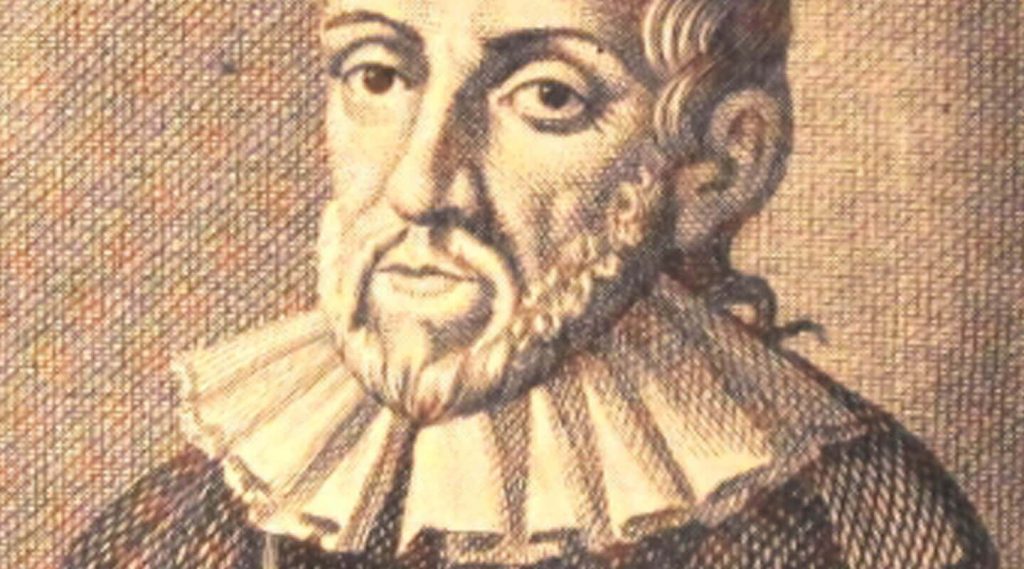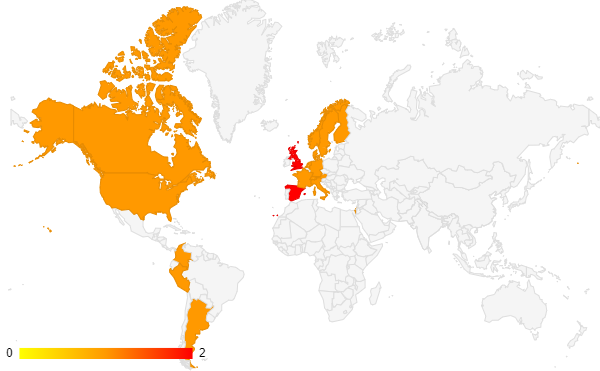
He was born in 1509 in Cosenza (Italy) where he stayed for about a decade. Starting in 1518, in fact, he followed his uncle Antonio— a great humanist and intellectual— to Milan and then to Rome where, in 1527, was a prisoner of the troops responsible of the sack of Rome for two years. Shortly afterwards, Antonio Telesio had to move to Venice for job and Bernardino followed him. He started studying math, optics, medicine, and philosophy at the University of Padua where the current Alexandrine of Aristotelianism was predominant. Once he left Padua, he retreated to a Benedictine monastery to focus on research and meditation. In 1553 in Cosenza, he married Diana Sersale who, however, died few years later, leaving their four children in the care of Telesio. He engaged in revitalizing Cosenza Academy and he succeeded in revolutionizing its literary and philosophical tendencies. In 1564, he declined Pio IV’s offer to become Cosenza Archbishop in favor of is brother. In 1565, in Rome, he published the first two books of his masterpiece, De rerum natura iuxta propria principia. In 1570, he reprinted them in Naples where, the complete work of nine books was published in 1586. He dedicated various lectures to De rerum natura, first in Rome and then in Naples. The last part of his life, despite his growing success, was marked by his first son Prospero’s murder (1576). Telesio died in Cosenza in 1588. De rerum natura, together with Quod animal universum and De somno, was included in the Index of prohibited books and the name of Telesio was eliminated from the Index only in 1990. Telesio’s thought derives from Aristotelianism but he breaks away from it, especially with regard to the theory of elements and motion, because Telesio states the importance of sensitivity as the exclusive source of knowledge. That is the reason why Telesio named his masterpiece iuxta propria principia: nature constantly acts according to principles within nature itself. The uniformity of nature is divine and the man’s possibility to know derives from the ability to recognize the forms of natural becoming. Telesio is considered as “the first of modern philosophers” by several scholars, because he marked a period of major change in the philosophical scene of the late Renaissance.
Telesio wrote his texts almost exclusively in Latin; thus, according to the general criteria selected [link], he should not have been included in the Compendium. However, Telesio’s historical importance—as already mentioned— is essential for modern philosophy; furthermore, he had a huge impact on several authors such as Bruno, Campanella and Machiavelli. For this reason, his masterpiece De rerum natura iuxta propria principia was consideredampane to be a fundamental aspect in the project.
Through the research carried out, there are only few full translations in Spanish and German and partial translations in English and German. Equally rare is the distribution of translations globally; in fact, a few more than twenty countries own Telesio’s works translations.
Distribution of the translations of Bernardino Telesio’s works

Bibliographic
Campa R., (2019), Il convivio linguistico. Riflessioni sul ruolo dell’italiano nel mondo contemporaneo, Carocci, Roma.
Giglioni, G. (2010). The first of the moderns or the last of the ancients? Bernardino Telesio on nature and sentience. Bruniana & campanelliana, 69-87.
Telesio, B., Treccani (o.l.) (last consulted on 14/10/2020).
Van Deusen, N. C. (1932). Telesio: the First of the Moderns, New York, Columbia university.